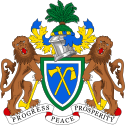
Politics of Ghana takes place in a framework of a presidential representative democratic republic, whereby the president of Ghana is both head of state and head of government, and of a two party system. The seat of government is at Golden Jubilee House. Executive power is exercised by the government. Legislative power is vested in both the government and Parliament. The judiciary is independent of the executive and the legislature.

The Gambia, officially the Republic of The Gambia and Gambia, is a country in West Africa. Geographically, Gambia is the smallest country in continental Africa; it is surrounded by Senegal, except for its western coast on the Atlantic Ocean. It is situated on both sides of the lower reaches of the Gambia River, which flows through the centre of the country and empties into the Atlantic Ocean. The national namesake river demarcates the elongated shape of the country, which has an area of 11,300 square kilometres (4,400 sq mi) and a population of 2,468,569 people in 2024. The capital city is Banjul, which has the most extensive metropolitan area in the country; the second- and third-largest cities are Serekunda and Brikama.

The president of India is the head of state of the Republic of India. The president is the nominal head of the executive, the first citizen of the country, as well as the supreme commander of the Indian Armed Forces. Droupadi Murmu is the 15th and current president, having taken office from 25 July 2022.
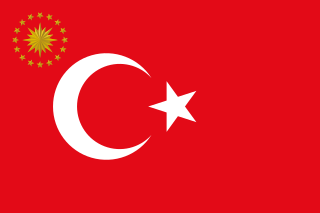
The president of Turkey, officially the president of the Republic of Türkiye, is the head of state and head of government of Turkey. The president directs the executive branch of the national government and is the commander-in-chief of the Turkish military. The president also heads the National Security Council.

The federal government of the United States is the national government of the United States, a federal republic located primarily in North America, composed of 50 states, five major self-governing territories, several island possessions, and the federal district and national capital of Washington, D.C., where most of the federal government is based.
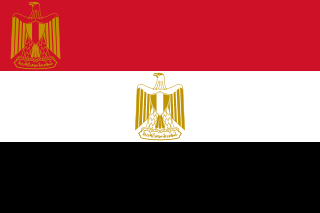
The President of the Arab Republic of Egypt is the executive head of state of Egypt and the de facto appointee of the official head of government under the Egyptian Constitution of 2014. Under the various iterations of the Constitution of Egypt following the Egyptian Revolution of 1952, the president is also the supreme commander of the Armed Forces, and head of the executive branch of the Egyptian government. The current president is Field Marshal Abdel Fattah el-Sisi, who has been in office since 8 June 2014.
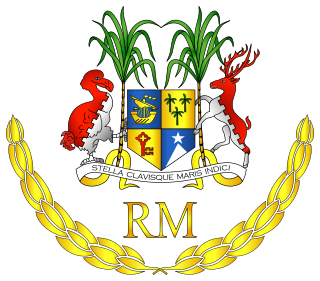
The president of the Republic of Mauritius is the head of state of the Republic of Mauritius. Mauritius is a parliamentary republic, and the president functions as a ceremonial figurehead, elected by the National Assembly as set out by the Constitution of Mauritius. The current office-holder is Prithvirajsing Roopun. He took the office on 2 December 2019. The president's official residence is the State House.

The president of the Socialist Republic of Vietnam is the head of state of Vietnam, elected by the Vietnam National Assembly from delegates of the National Assembly. Since Vietnam is a single-party state, the president is generally considered to hold the second highest position in the political system, formally after the general secretary of the Communist Party of Vietnam. In addition, the president appoints the head of government, the prime minister. As head of state, the President represents Vietnam both domestically and internationally, and maintains the regular and coordinated operation and stability of the national government and safeguards the independence and territorial integrity of the country.
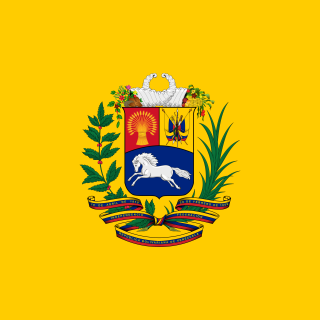
The president of Venezuela, officially known as the President of the Bolivarian Republic of Venezuela, is the head of state and head of government in Venezuela. The president leads the National Executive of the Venezuelan government and is the commander-in-chief of the National Bolivarian Armed Forces. Presidential terms were set at six years with the adoption of the 1999 Constitution of Venezuela, and presidential term limits were removed in 2009.

The vice president of Bolivia, officially known as the vice president of the Plurinational State of Bolivia, is the second highest political position in Bolivia. The vice president replaces the president in his definitive absence or others impediment and is the ex officio President of the Legislative Assembly.

The president of the Republic of Indonesia is the head of state and head of government of the Republic of Indonesia. The president leads the executive branch of the Indonesian government and is the commander-in-chief of the Indonesian National Armed Forces. Since 2004, the president and vice president are directly elected to a five-year term, once renewable, allowing for a maximum of 10 years in office.

The vice president of Sudan is the second highest political position obtainable in Sudan. Currently there is a provision for one de facto vice president, deputy chairman of the Transitional Sovereignty Council, who is appointed by the chairman of the council. Historically either the first or the second vice president was from Southern Sudan. From 2011 until the abolition of the post in 2019, the second vice president was from Darfur.

The vice president of the Republic of Maldives is the second-highest official in the executive branch of the government of the Maldives, after the president of the Maldives, and ranks first in the presidential line of succession. The vice president is directly elected together with the president to a five-year term of office.

The Cabinet of The Gambia is responsible for advising the President of The Gambia and for carrying out other functions as prescribed by law. It is composed of the President, the Vice-President, To date, all Prime Ministers and Presidents have represented and the Secretaries of State. It is responsible for regulating the procedure of its own meetings and is held accountable for its actions by the National Assembly, according to Sections 74 and 75 of the Constitution of The Gambia.

The president of the People's Republic of China, commonly called the president of China, is the state representative of the People's Republic of China. The presidency is a part of the system of people's congress based on the principle of unified power in which the National People's Congress (NPC) functions as the highest state organ of power. The presidency is a state organ of the NPC and equivalent to, for instance, the State Council and the National Supervisory Commission, rather than a political office, unlike the premier of the State Council. The president can engage in state affairs and receive foreign diplomatic envoys on behalf of China, but to perform other head of state functions, the president needs the consent of the NPC or the NPC Standing Committee. While the presidency is not a powerful organ in itself, since 27 March 1993, the president has concurrently served as general secretary of the Central Committee of the Chinese Communist Party (CCP) and chairman of the Central Military Commission, making the incumbent China's paramount leader and supreme commander of the armed forces.

The chief justice of the Gambia is the head of the Gambian judiciary and is responsible for the administration and supervision of the courts. The chief justice is also the chief judge of the Supreme Court of the Gambia.

Aja Fatoumata C.M. Jallow-Tambajang is a Gambian politician and activist who served as Vice-President of the Gambia and Minister of Women's Affairs from February 2017 to June 2018, under President Adama Barrow.
